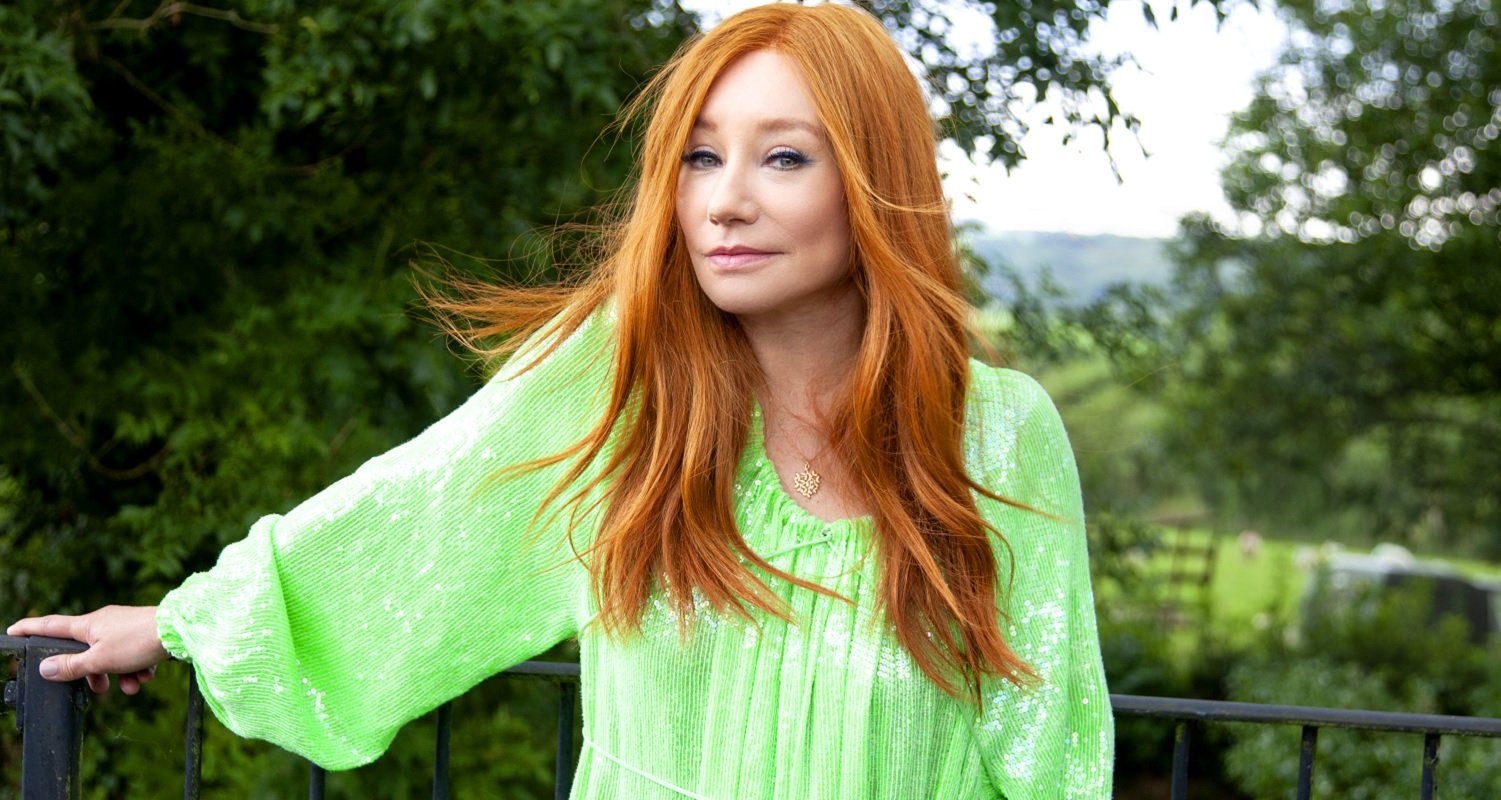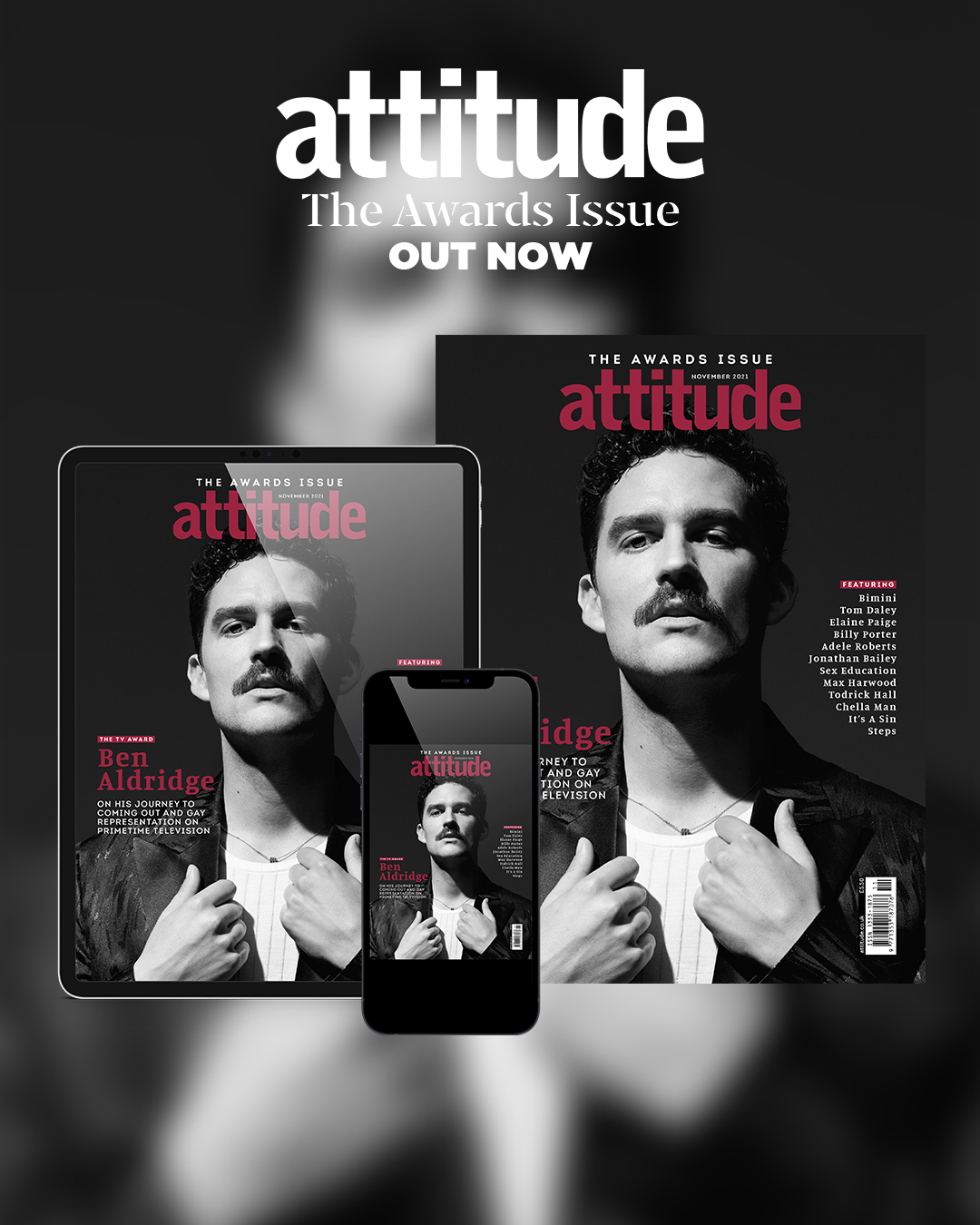Tori Amos has a message for her trans and non-binary fans, and it’s beautiful
Exclusive: "Sometimes I get up at 3am and start writing, because I’m drawn to the piano," says Tori of creating her new album Ocean To Ocean during the pandemic.

Words: Jamie Tabberer; pictures: by Desmond Murray
It’s almost 30 years since singer-songwriter and pianist extraordinaire Tori Amos revolutionized the music industry with her astonishing debut LP Little Earthquakes in January 1992.
Via chart hits like ‘Cornflake Girl’ and ‘Professional Widow’ (the remix was a UK Number One), plus a chapter writing music and lyrics for the hit National Theatre production of The Light Princess in 2013, this outspoken LGBTQ advocate this month returns with her 16th(!) studio album, Ocean to Ocean.
Here, we speak to the North Carolina native about life in lockdown in Cornwall with English husband Mark Hawley, her friendship with Pose star Sandra Bernhard and where to go for the best vegan food in Bude…

You’ve written at least two albums’ worth of material since the pandemic started. Can you share some insight into your songwriting process while making Ocean to Ocean, and what a typical day of work was like?
Each day is different. There’s a lot of research that goes into songwriting for me. So, there could be days where I’m reading for hours and making notes. Yes, we take breaks for meals, usually lunch, and dinner. But, at the same time, I’m not the type of person who gets up at a set time and works from nine to noon, then breaks, and then writes again. Sometimes I might get up at three in the morning and start writing, because I’m drawn to the piano, and an idea has come to me in the middle of the night.
So yes, it is more fluid, but there’s a discipline that’s involved as well. I know that sounds like a paradox, and I guess it is. It’s a fluid process, but it takes focus.
You’ve said the new album is about “loss”, written while in your “own private hell”, and you recently told The Independent that you felt something bordering on depression during the third lockdown. Can you share some of the rituals you employ to keep your mental health in check?
I found that clearing my head and going out into nature was important and could create a shift. Even the act of walking long enough so that you’re out of the living room, or whatever the space is you find yourself in most days. I found going outside and hearing life happening – the birds – was comforting. That Earth Mother was not in lockdown. She was busy, moving from winter to spring. It was eye-opening to watch how she works through her cycles, from death to rebirth.

Do you have any rituals when it comes to taking care of your voice? And, as a piano player, your hands?
With the voice, I’m off dairy. I’ve found that really helps. And I was a real lover of, particularly, British cheese. Another thing, ginger, honey, and lemon, but not too much lemon to dry you out. I’m careful about ice water when I’m singing, so I don’t freeze the chords. Some people swear by steaming your chords.
Magnesium is something a doctor told me to make sure when you’re playing [piano] hard, and a lot, if your hands are seizing up, that can be helpful.
Your new album is heavily inspired by Cornwall, and I’ve read that you get a lot of inspiration from people-watching around the world. Linking the two, do you have a favourite café, restaurant or pub in Cornwall?
What I’d say to you is, wherever the builders are, that’s where I’m going to be, because they’re the fun Cornish gang that have done work here at the studio! That’s how I know them, through my husband, Mark. Other than that, you can get some really good vegan food from a café called Temple in Bude. I recommend that.
What political issue is most on your mind this week and why?
What’s being talked about every day right now is COP26 climate change conference in Scotland. I think there are a lot of questions and a need for people with different perspectives. What doesn’t seem to be working for the average person – I’m saying the average person that I listen to or hear from – are extreme, extreme, extreme viewpoints. Trying to get people to make the changes and really apply them, we need people to understand ‘what can people do to take this step?’ That’s where I think we need really good thinkers, in order to galvanise the masses. And also people to galvanise the corporations that have the money to make big changes.
Can you share an encounter you’ve had with an LGBTQ music icon?
That would have to be Sandra Bernhard. Sandy. What an amazing performer and thinker. I had the privilege to sing background on her record in the ’80s Without You I’m Nothing. I was in awe of her energy. We just did an interview recently about the new album. She’s performing live again in New York, and I was curious what her experience is with that. What protocols she’s upholding to keep everybody safe, and just how she sees the world right now, I find really inspiring. I find she tries to really look at issues from all sides and she’s not afraid to say what she thinks. I have a lot of respect for that.

This year you tweeted about the discrimination transgender survivors of sexual assault face surrounding their identities. What is your message to your trans and non-binary fans?
My message to the trans and non-binary fans: please keep sending letters and sharing your viewpoints and challenges with me, and what you’re learning. I need to be taught about these things. And I look to the people who come to the shows to share with me so I can learn and grow.
What song or songs are you proudest of?
The ones that work! There are loads that don’t. Loads that no one hears. There are definitely some that people have heard that I think we could have done a better job in the arrangements or production over the last 30 years. Of course, there are going to be those. But you are who you are at the time. We all know this cliché phrase, that hindsight is 20/20. You try and learn from these experiences and apply these lessons to the next record.
What is your biggest hobby outside of music?
Collecting books. I love books. I like the feel of them, the parchment. I collect all kinds – art books, visual art books, mythology… Whatever I’m writing about hopefully I have a reference point in the library.
It’s well-known that you performed in Washington, D.C. gay bars as a teen. Were there any specific LGBTQ people who had an influence on you at that time?
Usually, they were in the service industry. The Maître d or the waiters. But in most places I played, there was at least one, sometimes more than one, LGBTQ person there. And they would always have their eye on me, looking out for me. I’ll always remember that.
Ocean To Ocean is out now.
The Attitude Awards issue is out now.
Subscribe in print and get your first three issues for just £1 each, or digitally for just over £1.50 per issue.

